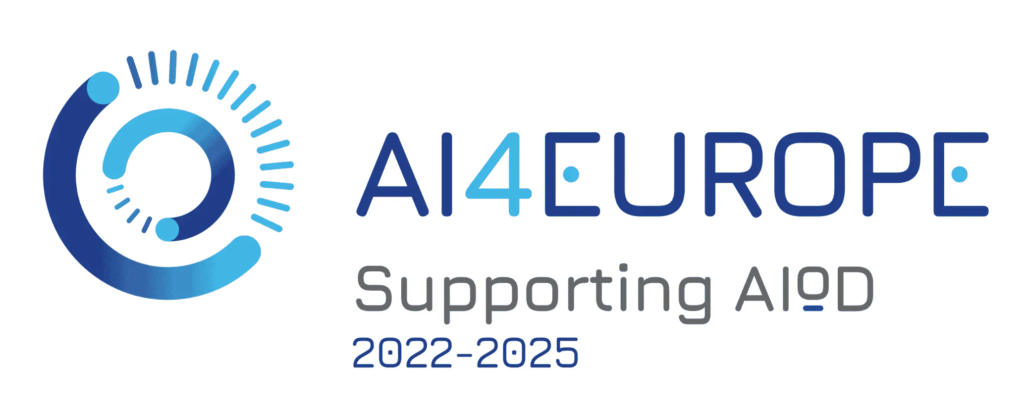
I Trust U
First International Workshop on Trustworthy Pervasive and Wearable AI
Workshop held on Monday March 17th at Percom 2025, March 17-21 Washington DC
Artificial Intelligence (AI) and Deep Learning (DL) methods have impacted society across multiple disciplines. Particularly in recent years, development is gro-wing rapidly and expanding into high-risk domains and applications, such as healthcare, the military, and the industry. Despite the importance and benefits AI applications can have, politics and the research communities have to debate the reliability of AI. Special considerations are imperative in the case of perva-sive computing, due to the presence of AI solutions daily and everywhere. In this workshop, we propose an open and interdisciplinary space to discuss and evaluate state-of-the-art verification techniques and trustworthiness for AI-based systems. Focusing on recognizing the limitations of current methodologies, we will also work on strategies for verification quality assessment in every stage of the development ofapplications toward trustworthy and wearable AI.
In the I-trust-U workshop, we aim for an interdisciplinary and balan- ced group of researchers and thus, encourage submissi-ons in a variety of domains, in-cluding but not limited to edu-cation and didactic, health- and mental care, fit-ness and well-being, economy, sociology, and others. Therefore, we encourage authors to submit their work within, but not limited to the following topics:
- Strategies for Wearable AI and ML Development with Human-in-the-loop: Here we want to add-ress specific questions regard-ing Human-in-the-loop develop-ments. These are: How can AI be more human-centric? How can we build accountable and transparent AI systems? How can AI help develop sustainable communities?
Workshop Topics.
- Wearable AI applications in sensitive or critical domains: In this topic, we welcome auth-ors to introduce novel AI appli-cations in sensitive and critical domains such as health and mental care, educationand society, and others
- Identifying Critical aspects in wearable AI applications: This topic serves to identify critical aspects of existing AI applica-tions. How can we verify them? What can we learn for future developments?
- Robustness Against Adversarial Attacks in Smart Wearables: Investigate adver-sarial attack generation methods in the context of HAR (human activity recognition) systems. This topic wants to study the vulnerability of activity recog-nition models to adversarial attacks in the feature and signal domain. Furthermore, the topic investigates the effects of ad-versarial attacks during training and inference on smart wearables
- Fairness and Scalability in the Training Strategy of wearble AI and ML models: This topic explores how to recognize bias-ed sources in data, algorithms, and human deci-sions. Along with new AI paradigms that prio-ritize fairness and ethical consi-derations. And identifying the impact of AI bias and propo- sing mitigation strategies.
- AI Reasoning Beyond Prediction (Uncertainty Estimation): In this topic, we would like to explore current approa-ches that can be used to teach an AI application to ques-tion itself and add the prediction ”I don’t know” when, for ex-ample, the data input is out-of-distribu-tion (OOD).
- AI, Ethics and the implications and chances of the EU AI Act for research and verifica-tionof AI applications: We invite discussions about current strategies of politics and resea-rch toregulate AI on an interna-tional level.
Explainable AI Methods for Trustworthy AI Development: This topic covers state-of-the-art techniques for describing and visualizing AI models, forecast-ing expected effects, and iden-tifying potential biases to impro-ve human perception of com-plex AI design and implemen-tation.
Submission
Deadline for submissions: !Extended!: December 1st, 2024
Paper notification: January 10, 2025
Camera Ready Deadline: February 02, 2025
Submission instuctions: click link: easychair and log in,
click „make a new submission“ and select the Track „I-Trust-U“ to start your submission
Submissions to this workshop will take the form of full papers only:
Full papers (max. 6 pages in length) should report reasonably mature work within the scope of I-trust-U and are expected to demonstrate concrete and reproducible results. Accepted full papers will be presented and discussed in 10-minute slots. The papers should be in the double column IEEE format. Manuscripts must be formatted in accordance with the IEEE Computer Society author guidelines. The IEEE LaTeX and Microsoft Word templates, as well as related information, can be found at the IEEE Computer Society website (https://www.ieee.org/conferences/publishing/templates.html).
Submitted papers will be refereed by the workshop Program Committee.
Accepted papers will appear in the IEEE PerCom’25 Workshops proceedings published by IEEE Computer Society Press.
Research papers must be original unpublished work and not under review elsewhere. Experience reports must be stated as such and a comprehensive discussion of the taken approach, experiences, and its assessment is expected.
Each accepted paper requires a full PerCom registration! No registration is available for workshops only.
Workshop papers will be included and indexed in the IEEE digital libraries (Xplore).
For submission of the camera-ready paper please follow the instructions on the PerCom website: http://www.percom.org/
Format and Schedule
Begin: 13:30, Room 149 A
The half day Worksho starts at 13:30 (1:30 pm) and ends at 17:00 (5:00 pm), with one planned coffee breaks (each 15 minutes) Participants start the day by presenting themselves. Afterward we have the paper presentations and group activities. The Workshop will end with a Discussion Session where each group will present the outcome of their discussion
Presentation: Authors of accepted full papers will present their work in a short 5-minute presentation plus a 2-minute Q&A style. The reason for this rather short
presentation time is to invite the presenters to focus on the essence of their work!
Group Activities: In the break-out sessions, participants will be divided
into smaller groups of 5-10 participants + an expert leading the break-out session. The main goalof these sessions is to engage interactively to work on particular topics,
Organising and Program Committees
Unser umfassendes Angebot an Fachleuten bietet ein vielfältiges Team, das von erfahrenen Architekten bis zu renommierten Ingenieuren reicht.

Agnes Gruenerbl

Oscar Mayora

Paul Lukowicz
Organising Committee
Hymalai Bello, German Research Center for Artificial Intelligence
Daniel Geißler, German Research Center for Artificial Intelligence
Vitor Fortes, German Research Center for Artificial Intelligence
Mengxi Liu, German Research Center for Artificial Intelligence
Programm Committee
Bo Zhou, Vitor Fortes Rey, Giulia Barbareschi, Passant Elagroudy, Daniel Geißler, Agnes Grünerbl
The I-Trust-U Workshop is supported by:
